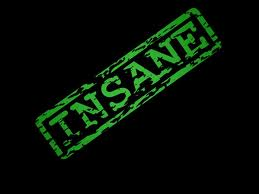Ready for war? Any sign of
weakness might be politically fatal for North Korean leader Kim
Jong-un Photo:
EPA
There are two schools of thought about what lies behind North Korea’s
increasingly frenzied posturing. The first goes like this: the rhetoric
emanating from Pyongyang – including calls to “break the waists of the crazy
enemies [and] totally cut their windpipes” – is no worse than their decades-old
ritualistic promises to turn South Korea into a “sea of fire”.
What we are witnessing, according to this theory, is nothing more than an
inexperienced leader (Kim Jong-un has only just turned 30) shoring up his power
base at home, testing the resolve of a newly elected South Korean president, and
lashing out at the latest round of US sanctions and joint US-South Korean
military exercises.
The second approach is to caution that this time, it’s different: North Korea
has carried out a third nuclear test, formally repudiated its armistice with the
South, cut a military hotline, restarted the plutonium-producing Yongbyon
reactor, and stopped access to the joint North-South Kaesong industrial zone –
which had been allowed to operate through even the worst crises in recent years.
What is more, we have little understanding of how the relationship between the
leader and his generals has changed since the opaque transition from Kim Jong-il
– someone who knew the tacit rules of a showdown with Seoul – and his son.
How should we arbitrate between these two views? We could start by
distinguishing between fantasy and fiction. The Prime Minister warned yesterday,
in an article for The Daily Telegraph, that North Korea was “a continuing, and
growing, nuclear threat”. But he picked his words carefully, aware that this was
not yet “a reality”.
Simply put, North Korea cannot mount a nuclear warhead on a ballistic missile
and then deliver it to the US mainland. When Kim Jong-un posed last week with
missile strike plans displayed in the background, arrows streaking across the
Pacific to American cities, those might as well have been lines daubed on a game
of Risk. Pyongyang might be able to hit Japan, South Korea, or some nearby US
bases, but even this veers to the implausible, given the plethora of land-based
and ship-borne missile defence platforms that the United States has deployed in
recent days and years.


No comments:
Post a Comment
Thanks For your Comment, muchly appreciated